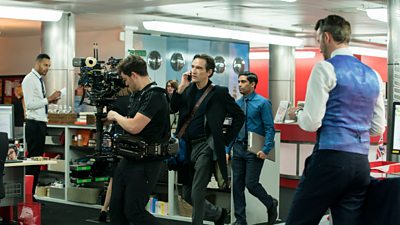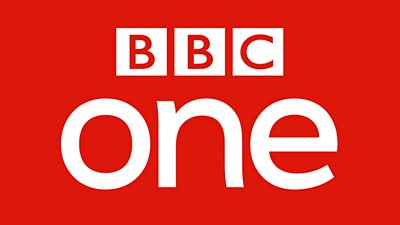Interview with Mike Bartlett, writer
Interview with the writer of Press, Mike Bartlett

I went in keen to explore whether journalists were passionate truth-tellers, working hard out of a real vocation, or cynical hacks just keen to get clicks or higher circulation...
What is Press about?
Press is about journalists who work at two fictional newspapers, a right-leaning populist tabloid, The Post, and a left-leaning more serious broadsheet, The Herald. We see how the two papers cover the same news stories very differently, and through that we learn what drives this set of characters, what secrets they have themselves, when will they stick to principal, and when will they hurt everyone around them to get the story.
It’s an entirely fictional world, with fictional papers and fictional stories, but I remembered Jonathan Lynn and Anthony Jay saying that with Yes Minister they worked out the subjects that would always be topical and wrote about those. It meant Yes Minister seems timely whenever you watch it. That’s been my approach - trying to work out what stories and subjects the papers are always fascinated by, and what kind of events tend to always trip them up.
News itself is in the headlines almost every week. It’s an industry facing massive challenges, and that affects us all. Most of us access the news through a screen now, and are reluctant to pay for it. But just as that access has opened up, there’s an increasing lack of trust in what we’re receive. In a world where any assertion, however well researched, can be dismissed as 'fake news' and replaced with an 'alternative fact', we have to decide what organisations we can truly believe.
What made you want to write a contemporary drama about newspapers?
I’ve been wanting to write about journalists for a long time as I loved the idea that you tell all the different sorts of stories that papers carry in one series - everything from high politics to celebrity stories. But then with Leveson, with the massive changes to how news is consumed in the last few years, and most recently with the era of 'fake news' it feels like a vital moment to explore how news is gathered and distributed and the importance of getting as close as we can to the truth.
What research did you do before you started writing?
I visited a number of national newspapers, broadsheets and tabloids, as well as speaking to quite a few freelance journalists who had experience across the field. I have also been lucky to have Roy Greenslade act as a consultant on the series, who’s been incredibly useful in arranging research, and also fact-checking the show, after it’s been written.
Was there anything surprising you discovered about journalists and the world of news in your research? Did it make you change your opinions about journalists or the newspaper industry?
I discovered many surprising things about journalists and put them in the show, so you’ll have to watch to find out. I went in keen to explore whether journalists were passionate truth-tellers, working hard out of a real vocation, or cynical hacks just keen to get clicks or higher circulation. Of course the truth is there’s both, and everything in between. That’s why it’s such a good space for a drama.
Can you describe the characters?
They come from different backgrounds and have become journalists for different reasons. I think the one thing they all share is that their job is a huge part of their lives, if not the most important part. It’s all-consuming, and that has consequences for their relationships, their family and friends.
Are the tabloid and broadsheet papers in the show in competition?
Not officially, as it’s a different readership for the two papers, but there’s a healthy competition for stories, for exclusives and to be relevant in the news landscape. There’s also other, more personal and potentially more destructive rivalries that exist between the characters, rather than the institutions.
What can fans of Doctor Foster expect from Press? Is it similar in any way?
Although it’s different to Doctor Foster in that it’s an ensemble show, with many different stories across every episode, I hope, like Foster, it will genuinely shock and surprise the audience with what happens to the characters, and with the larger story we’re telling over the six episodes.
